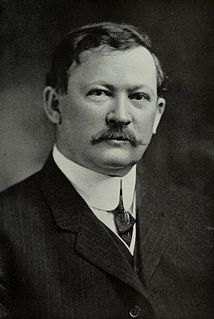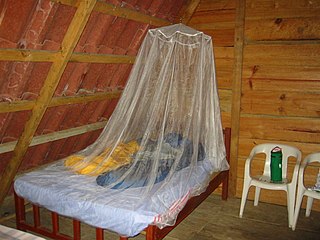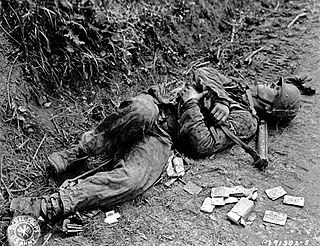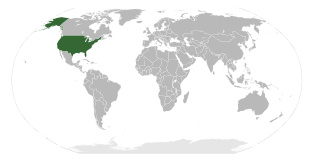Field hygiene and sanitation are two facets of military medicine that seek to ensure reduction of casualties through avoidance of non-combat related health issues among military personnel, particularly in the prevention of disease. As such, it encompasses prevention of communicable diseases; promotes personal hygiene; ensures adequate field water supply; supervises food sanitation; administers waste disposal; and controls, prevents, and combats insect-borne diseases transmitted by mosquitoes, louses, flies, fleas, ticks, mites, and other insects. Field hygiene also includes knowledge, avoidance, and control of venomous animals and rodents, as well as mitigation of health problems related to extreme temperature environments.
Lack of field hygiene and sanitation were major contributors to non-combat casualties and deaths in pre-modern field armies, and these remained serious threats to soldier health in modern warfare during the First World War, on the Eastern Front during the Second World War, in the Korean War, the Vietnam War and the Soviet–Afghan War. Inadequate field hygiene and sanitation are also major medical problems and causes of death among refugee populations around the world.

Hygiene is a series of practices performed to preserve health. According to the World Health Organization (WHO), "Hygiene refers to conditions and practices that help to maintain health and prevent the spread of diseases." Personal hygiene refers to maintaining the body's cleanliness.

Sanitation refers to public health conditions related to clean drinking water and adequate treatment and disposal of human excreta and sewage. Preventing human contact with feces is part of sanitation, as is hand washing with soap. Sanitation systems aim to protect human health by providing a clean environment that will stop the transmission of disease, especially through the fecal–oral route. For example, diarrhea, a main cause of malnutrition and stunted growth in children, can be reduced through adequate sanitation. There are many other diseases which are easily transmitted in communities that have low levels of sanitation, such as ascariasis, cholera, hepatitis, polio, schistosomiasis, and trachoma, to name just a few.

Hand washing, also known as hand hygiene, is the act of cleaning one's hands with soap and water to remove viruses/bacteria/microorganisms, dirt, grease, or other harmful and unwanted substances stuck to the hands. Drying of the washed hands is part of the process as wet and moist hands are more easily recontaminated.

Public health has been defined as "the science and art of preventing disease”, prolonging life and improving quality of life through organized efforts and informed choices of society, organizations, communities and individuals. Analyzing the determinants of health of a population and the threats it faces is the basis for public health. The public can be as small as a handful of people or as large as a village or an entire city; in the case of a pandemic it may encompass several continents. The concept of health takes into account physical, psychological, and social well-being. As such, according to the World Health Organization, it is not merely the absence of disease or infirmity and more recently, a resource for everyday living.
Tropical diseases are diseases that are prevalent in or unique to tropical and subtropical regions. The diseases are less prevalent in temperate climates, due in part to the occurrence of a cold season, which controls the insect population by forcing hibernation. However, many were present in northern Europe and northern America in the 17th and 18th centuries before modern understanding of disease causation. The initial impetus for tropical medicine was to protect the health of colonial settlers, notably in India under the British Raj. Insects such as mosquitoes and flies are by far the most common disease carrier, or vector. These insects may carry a parasite, bacterium or virus that is infectious to humans and animals. Most often disease is transmitted by an insect "bite", which causes transmission of the infectious agent through subcutaneous blood exchange. Vaccines are not available for most of the diseases listed here, and many do not have cures.

Travel medicine or emporiatrics is the branch of medicine that deals with the prevention and management of health problems of international travelers.

Tropical medicine is an interdisciplinary branch of medicine that deals with health issues that occur uniquely, are more widespread, or are more difficult to control in tropical and subtropical regions.

Rupert Blue was an American physician and soldier. He was the fourth Surgeon General of the United States from 1912 to 1920. He served as president of the American Medical Association in 1916–17.

A mosquito net is a type of meshed curtain that is circumferentially draped over a bed or a sleeping area, to offer the sleeper barrier protection against bites and stings from mosquitos, flies, and other pest insects, and thus against the diseases they may carry. Examples of such preventable insect-borne diseases include malaria, dengue fever, yellow fever, zika virus and various forms of encephalitis, including the West Nile virus.

A casualty, as a term in military usage, is a person in military service, combatant or non-combatant, who becomes unavailable for duty due to several circumstances, including death, injury, illness, capture or desertion.

Neglected tropical diseases (NTDs) are a diverse group of tropical infections which are common in low-income populations in developing regions of Africa, Asia, and the Americas. They are caused by a variety of pathogens such as viruses, bacteria, protozoa and parasitic worms (helminths). These diseases are contrasted with the big three infectious diseases, which generally receive greater treatment and research funding. In sub-Saharan Africa, the effect of these diseases as a group is comparable to malaria and tuberculosis. NTD co-infection can also make HIV/AIDS and tuberculosis more deadly.

The American Sexual Health Association (ASHA), formally known as the American Social Hygiene Association and the American Social Health Association, is an American nonprofit organization established in 1914, that cites a mission to improve the health of individuals, families, and communities, with an emphasis on sexual health, as well as a focus on preventing sexually transmitted infections and their harmful consequences. ASHA uses tools such as education, communication, advocacy and policy analysis activities with the intent to heighten public, patient, provider, policymaker and media awareness of STI prevention, screening, diagnosis and treatment strategies.
The Sudanese Red Crescent (SRC) is the biggest and most decentralized and widespread humanitarian organization operating in Sudan. The society developed out of the Sudan branch of the British Red Cross Society and was established in 1956. Upon Sudan's independence in March 1956 received official recognition as an independent National Society following the Sudanese Council of Ministers decree No. 869. The National Society covers nearly the entire country with 15 State branches and several sub-branches/units in the provinces/localities and administrative units, with a nationwide community-based network of 35,000 active volunteers and another 300,000 who can be deployed as need arises. It has well-established working relations with public authorities at federal, state and local levels, and good partnership and collaboration with Movement partners and UN specialized agencies and national and international NGOs working in Sudan.
Military psychiatry covers special aspects of psychiatry and mental disorders within the military context. The aim of military psychiatry is to keep as many serving personnel as possible fit for duty and to treat those disabled by psychiatric conditions. Military psychiatry encompasses counseling individuals and families on a variety of life issues, often from the standpoint of life strategy counseling, as well as counseling for mental health issues, substance abuse prevention and substance abuse treatment; and where called for, medical treatment for biologically based mental illness, among other elements.

Life expectancy has risen by two years for males and females in Vietnam between 2000 and 2012. This is half of the average rise in life expectancy for other parts of the world during the same time period.

Global Handwashing Day (GHD) is an international handwashing promotion campaign to motivate and mobilize people around the world to improve their handwashing habits. Washing hands at critical points during the day and washing with soap are both important.

WASH is an acronym that stands for "water, sanitation and hygiene". Universal, affordable and sustainable access to WASH is a key public health issue within international development and is the focus of the first two targets of Sustainable Development Goal 6. Targets 6.1 and 6.2 aim at equitable and accessible water and sanitation for all. "Access to WASH" includes safe water, adequate sanitation and hygiene education. Improving access to WASH services can improve health, life expectancy, student learning, gender equality, and other important issues of international development. This can reduce illness and death, and also affect poverty reduction and socio-economic development. Challenges include providing services to urban slums, improper management of water distribution systems, failures of WASH systems over time, providing equitable access to drinking water supply and gender issues. WASH services have to be provided to household locations but also to schools, healthcare facilities, work places, markets, prisons, train stations, public locations etc.

School hygiene or school hygiene education is a healthcare science, a form of the wider school health education. The primary aims of school hygiene education is to improve behavior through useful practices connected to personal, water, food, domestic and public hygiene. Also, it aims to protect water and food supplies and to safely manage environmental factors.
Valerie Curtis was a British scientist who was Director of the Environmental Health Group at the London School of Hygiene and Tropical Medicine. This is a multidisciplinary group dedicated to improving hygiene, sanitation and water in households and schools through enhancing knowledge.

Emergency sanitation is the management and technical processes required to provide sanitation in emergency situations. Emergency sanitation is required during humanitarian relief operations for refugees, people affected by natural disasters and internally displaced persons. There are three phases of emergency response: Immediate, short term and long term. In the immediate phase, the focus is on managing open defecation, and toilet technologies might include very basic latrines, pit latrines, bucket toilets, container-based toilets, chemical toilets. The short term phase might also involve technologies such as urine-diverting dry toilets, septic tanks, decentralized wastewater systems. Providing handwashing facilities and management of fecal sludge are also part of emergency sanitation.